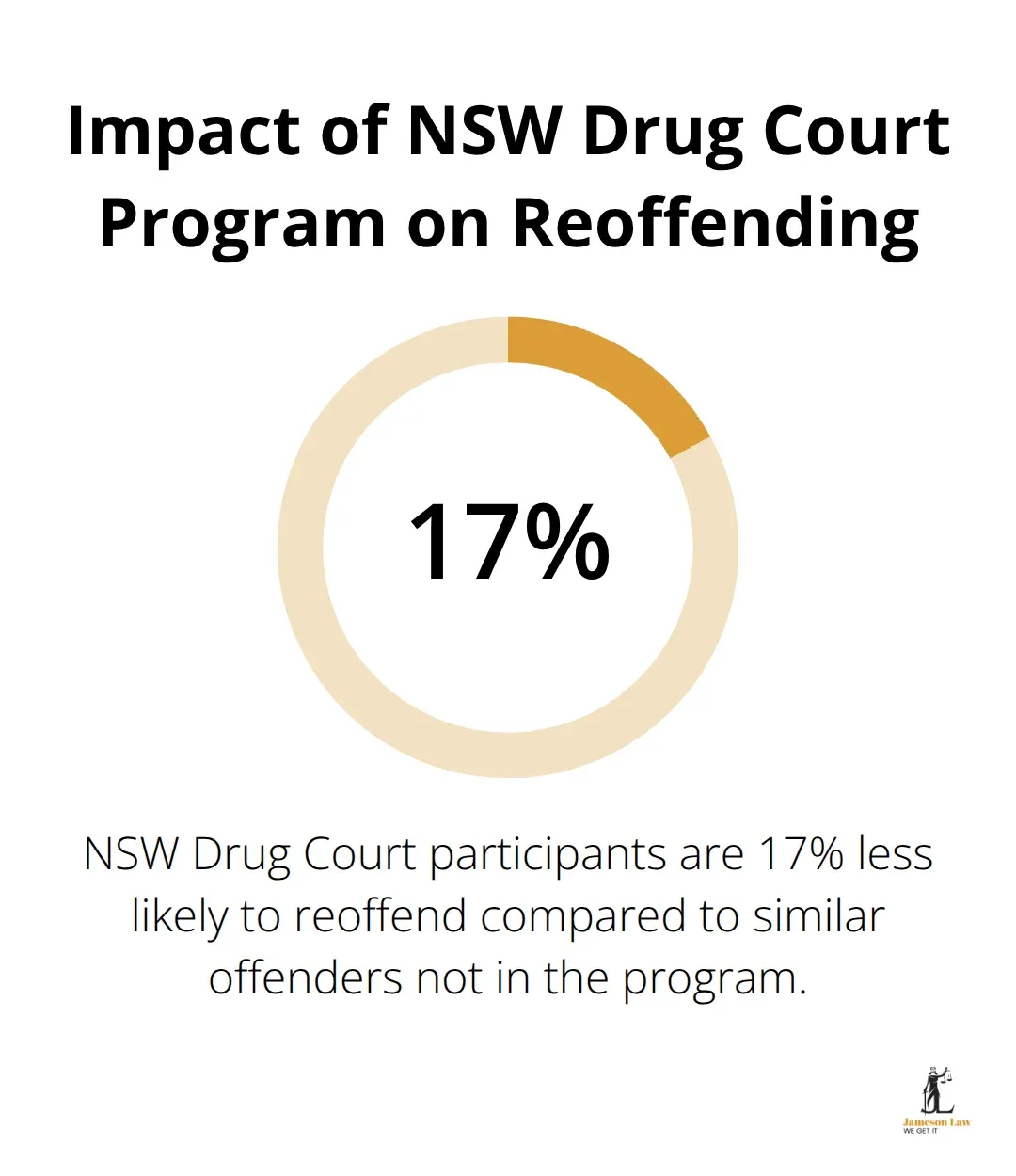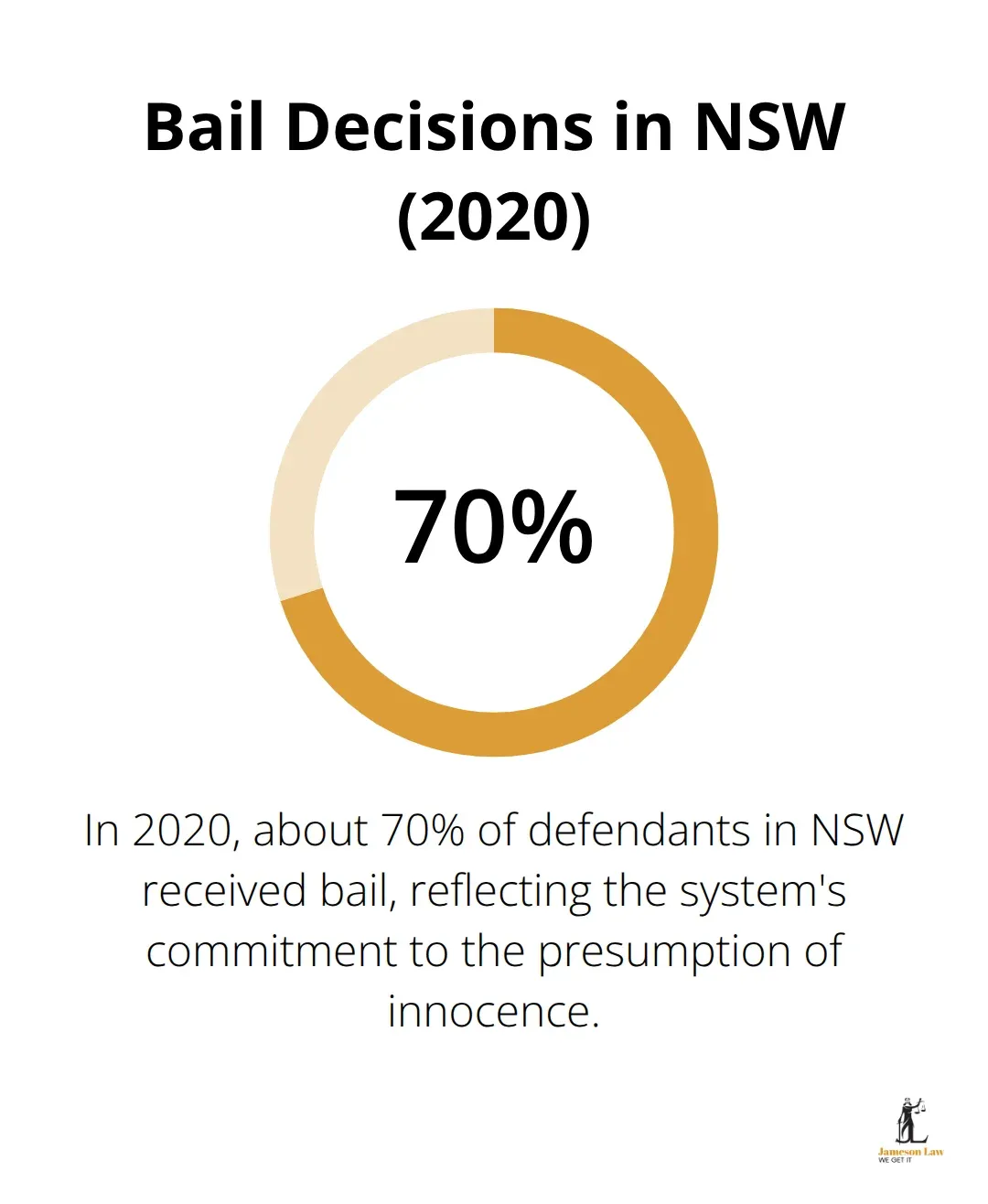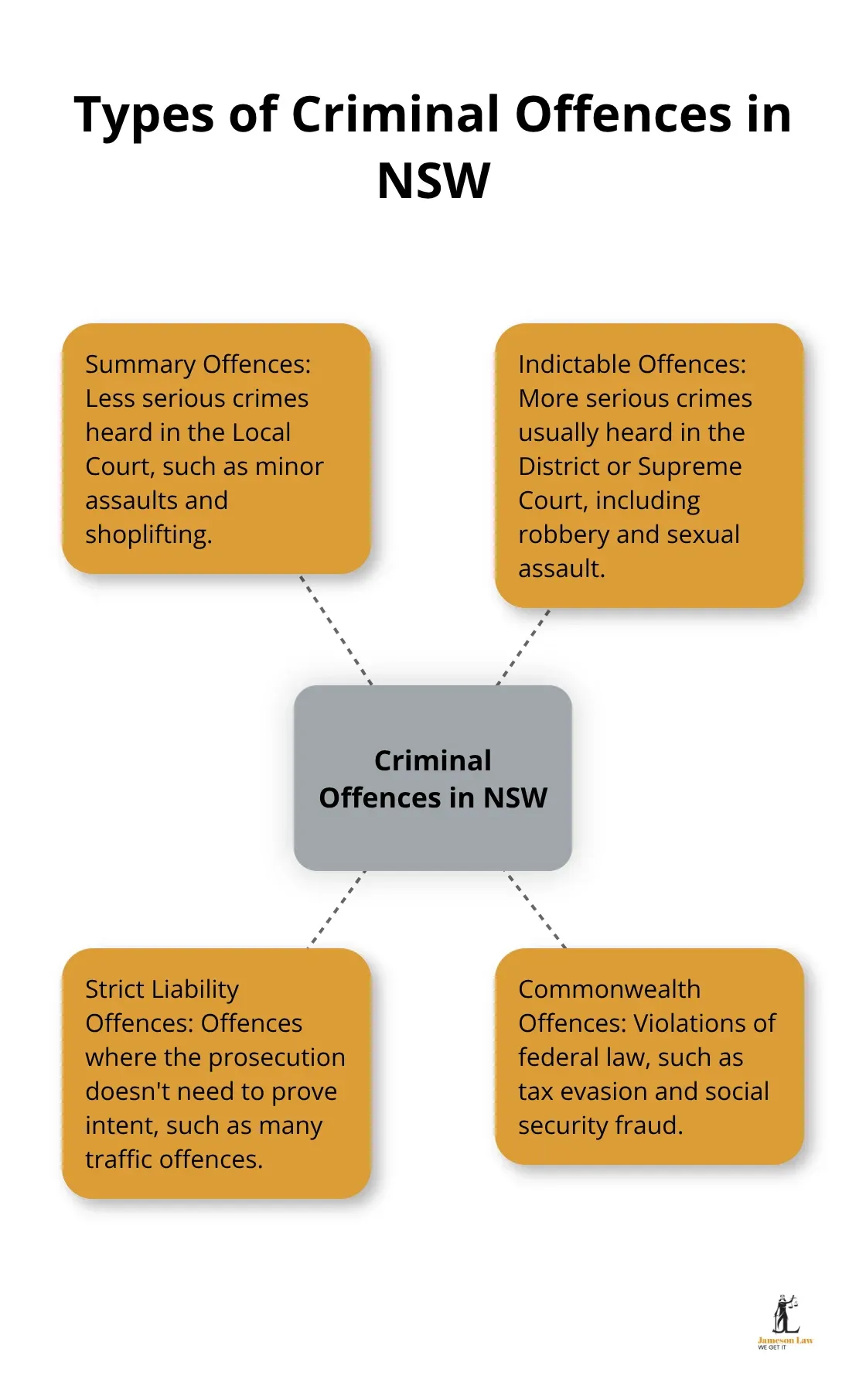Criminal law forms the backbone of our justice system, shaping societal norms and protecting individuals from harm. At Jameson Law, we often encounter clients grappling with the complexities of this legal domain.
Understanding the purpose of criminal law is essential for anyone navigating the legal landscape. This blog post will explore the core objectives, key principles, and types of criminal offences in NSW, shedding light on why criminal law exists and how it functions in our society.
Why Criminal Law Exists
Criminal law forms the backbone of Australia’s justice system, playing a vital role in maintaining a safe and orderly society. At its core, criminal law protects individuals and communities from harm while promoting justice and social stability.
Safeguarding Society
The primary purpose of criminal law is to shield society from harmful behaviours. Criminal law creates a framework for addressing wrongdoing by defining and prohibiting actions that threaten public safety. The Crimes Act 1900 (NSW) outlines offences including murder, manslaughter, assault, robbery, kidnapping, fraud and drug offences, ensuring that people who engage in such conduct face legal consequences.
Deterring Criminal Behaviour
Criminal law acts as a deterrent against unlawful conduct. The prospect of penalties, including fines and imprisonment, discourages offending. NSW research has linked targeted enforcement, such as random breath testing, with reductions in alcohol-related road trauma, illustrating how deterrence measures can improve safety.
Rehabilitating Offenders
While punishment is part of the response, rehabilitation is equally important. NSW programs like the Drug Court of NSW focus on addressing the causes of offending. Studies indicate participants are less likely to reoffend compared to similar offenders who do not take part.

Maintaining Social Order
Criminal law sets boundaries for acceptable behaviour and provides a framework to resolve disputes through legal channels rather than vigilantism. This supports social cohesion and public confidence in the justice system.
Upholding Justice and Fairness
A core function of criminal law is to ensure justice is done and rights are protected. Due process safeguards include the presumption of innocence, access to legal representation and avenues of appeal. These principles are reflected across NSW practice and procedure.
The multifaceted nature of criminal law underscores its significance in our society. As we explore the key principles of criminal law in NSW, we will see how these objectives operate within the legal framework.
How Does NSW Criminal Law Protect Rights?
NSW criminal law rests on fundamental principles that safeguard rights and maintain the integrity of the system. These principles ensure fairness and equity in criminal proceedings.
The Presumption of Innocence
Every person accused of a crime is presumed innocent until proven guilty. This practical safeguard influences investigations, bail and trial processes. For general guidance, see LawAccess NSW and our overview of bail applications.

The Burden of Proof
Aligned with the presumption of innocence, the burden of proof rests on the prosecution to establish guilt beyond reasonable doubt. This high standard ensures convictions rely on strong evidence rather than suspicion.
The Right to a Fair Trial
NSW law guarantees a fair trial, including:
- The right to legal representation
- The right to hear and challenge evidence
- The right to an impartial tribunal
Access to representation is supported through Legal Aid NSW and community services, alongside private solicitors. See how courtroom representation works in practice.
Proportionality in Sentencing
Sentences should reflect the seriousness of the offence and the offender’s circumstances. For data and guidance, see the Judicial Commission of NSW sentencing resources. Outcomes often include fines or community-based orders in the Local Court, with imprisonment reserved for more serious cases.
These principles shape the outcomes of criminal cases. Understanding them is essential for anyone navigating the criminal justice system in NSW.
Types of Criminal Offences in NSW
Criminal law categorises offences by seriousness and prosecution method. This affects the court, process, penalties and long-term consequences. Knowing the category helps shape an effective defence strategy.

Summary Offences
Summary offences are less serious matters heard in the Local Court, such as minor assaults, shoplifting and many traffic offences. Maximum penalties are limited by statute and court jurisdiction. Outcomes often include fines or community-based orders.
Indictable Offences
Indictable offences include more serious crimes, commonly dealt with in the District or Supreme Court. Examples include robbery, sexual assault and drug supply. Sentences vary widely depending on the facts, the law and mitigating or aggravating features. See our pages on drug offences and domestic violence offences.
Strict Liability Offences
Strict liability offences do not require the prosecution to prove intent. Many traffic infringements fall into this category. If police allege speeding, intent is not an element. Penalties may include fines, demerit points or licence suspension for repeat or serious offending. Learn more about traffic offences in NSW.
Commonwealth Offences
Commonwealth offences breach federal law, including tax fraud, social security fraud and drug importation. These matters are prosecuted by the Commonwealth Director of Public Prosecutions and may be heard in state or federal courts.
Final Thoughts
Criminal law protects society, deters crime and upholds justice. Its purpose extends beyond punishment to rehabilitation and social order. NSW practice, offence categories and sentencing principles require expert navigation.
We at Jameson Law understand the impact of criminal charges on your life. Our experienced Sydney criminal lawyers provide comprehensive support to protect your rights at every stage, from initial police contact and bail through to sentencing advocacy and appeals.
Professional legal advice can make a substantial difference to the outcome of your case. If you face criminal charges in NSW, seek advice promptly or call (02) 8806 0866 for a confidential consultation.













